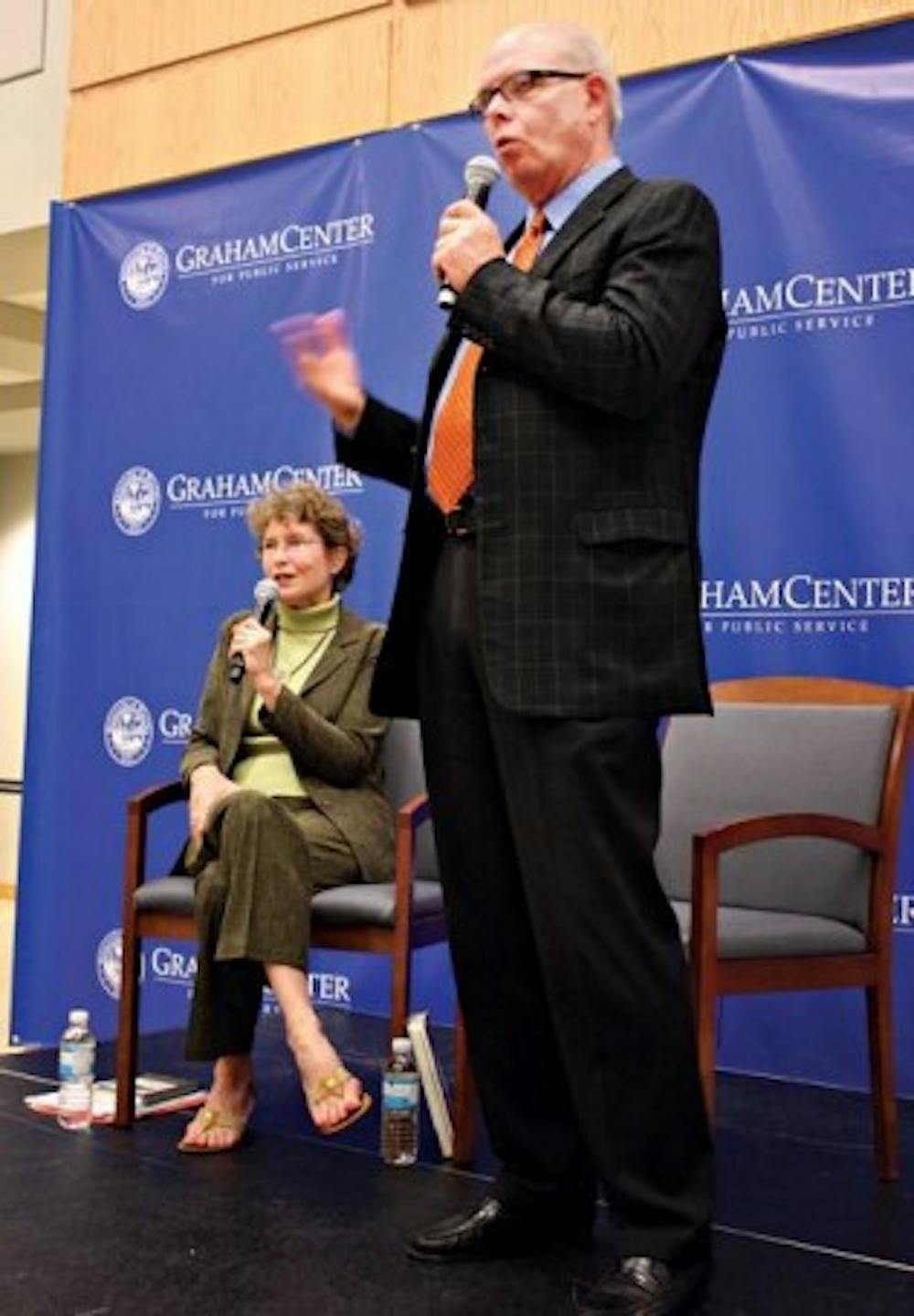While UF President Bernie Machen was able to let loose and lose the tie, his wife, Chris, complained she had to don a head scarf during the couple's excursion to Iran in November.
The Machens took the stage Tuesday night in UF's Pugh Hall Ocora in front of about 60 people to discuss their recent trip, which was part of an effort to foster science research exchange between the U.S. and Iran.
Machen was one of six university presidents selected to visit Iranian universities in a delegation organized by the Association of American Universities.
Other universities involved included Cornell University and the University of California, Davis. Most of the travel costs were picked up by the Richard Lounsbery Foundation.
Machen told the audience he hopes his trip will encourage more Iranian students to apply to UF.
"Ultimately, what (the trip) means for us is faculty and students should come here and go there," he said after the speech. "There should be a free flow." However, he said, strict U.S. visa policies would have to change in order for that to happen.
Machen said he is also looking forward to UF collaborating with Iranian researchers.
He said he is working with Dennis Steindler, executive director of UF's McKnight Brain Institute to bring Iranian faculty and students to the institute.
"The one area that I looked at and we're working on right now is stem cell research," he said.
"They're not on the same restrictions as our country is," he said. "Our government restricts the kind of stem cell research we do."
Machen also mentioned that the FBI has taken an interest in the trip. The six university presidents will be meeting with the agency next week in Washington, he said, to share their experiences.
During his speech, Machen said he talked with students, faculty and administrators from three universities in Tehran.
He said the students were bright, spoke English well and were not as isolated from the rest of the world as he had imagined.
Every dorm room he visited was wired with the Internet, and students were browsing the same type of content as their peers in the U.S., he said.
Machen also said many of the professors were not shy about criticizing Mahmoud Ahmadinejad, Iran's president.
"The intellectuals with whom we interacted quickly separated themselves from their president," he said.
"We had a lot of common conversation at that point in time about a people that are not in sync with their president," he said. "And we could relate to that."
There were some things Machen couldn't quite relate to, though.
"One thing I can tell you is there's no alcohol in Iran," he said. "I learned to like that no-alcohol beer, that's about the best you can do."






